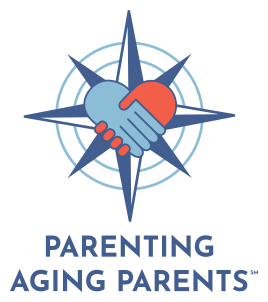Should I be a signer on my parents’ bank account?
There is a lot of confusion about how to best help your parents with their banking in case you need to pay bills or handle the money. Should you be on their accounts? What does a Power of Attorney do? Some things differ from state to state, so the first thing to do is to talk to a banker to make sure everyone understands what each of the options are and what the terms mean.
Kim and Mike Barnes of Parenting Aging Parents talk to Sal Ramirez of Amegy Bank to find out steps that need to be taken to be an authorized signer/joint owner of an account, how a Power of Attorney can be used, what the differences are between types of account ownership, liability, online banking, what happens when they pass away, what to do if you’re not getting the answers you need and the importance of knowing your parents’ banker.



